Moving to Toronto
Toronto is Canada’s largest city, located nearby Lake Ontario. The city itself has 2.5 million residents, with a further population of 5.5 million in the Greater Toronto Area (GTA). Toronto is considered the safest city in all of North America, which comes at a price – it is also the most expensive place to live in Canada. Despite that, Toronto has been ranked 15th worldwide for the quality of life, which makes it a great place to be. If you’re planning on moving to Toronto, you’ll want to read all the information we’ve compiled to help make your move a smooth one. You can also take advantage of our international relocation services.
Many British expats choose to move to Toronto. The way of life is appealing to many, so if you’re planning to move to Toronto from the UK, you’re likely to meet several other Brits whilst living in the city.
Time Zone
Canada spans 6 different time zones and Toronto falls into Easter Standard Time (EST) or GMT – 5 hours. For those of you moving from the UK, you will be 5 hours behind the UK when living in Toronto. Plan your family calls accordingly!
Climate
Although Canada is known as a place with extreme weather and freezing winters, Toronto is actually one of the more mild places to live in Canada. It, therefore, has very similar summer weather to Detroit or parts of Scotland. Average temperatures in spring range from 15 Celsius to 25 Celcius. The coldest month January drops down to anywhere ranging from -1.3 Celcius to -7.9 Celcius.
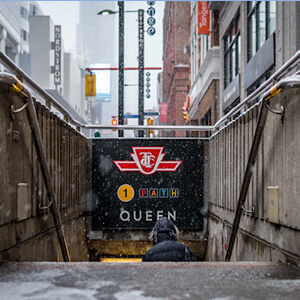
Is Toronto a safe city?
Wherever you move, the question that always pops in everyone’s head is – ‘will I be safe here?’. With this city, you have nothing to worry about – Toronto is known globally as an extremely safe city, with low crime levels and a well-developed infrastructure.
Public Transportation
Toronto Transit Commission (TTC) manages the public transportation in the Toronto area. It has a total of 11 car routes, 140 bus routes and 4 subway lines. PRESTO metro passes are available for the long term and are a great way to save money on fares. If only travelling occasionally, you can also purchase tokens, tickets or pay by cash as you go. Keep in mind that the exact fare is only accepted – no change will be given.
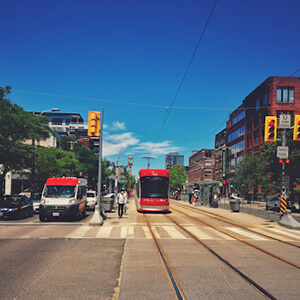
Driving
If you will only be commuting in Toronto, then both public transport and driving your own car are viable options. However, to travel out of Toronto it is absolutely necessary to have your own vehicle. Given the size and long distances between cities, it will not only be a lot more convenient but also faster and more cost-effective.
For information on traffic, visit the Toronto Traffic reports site. The Driver’s Handbook is also a great way to familiarise yourself with traffic rules in Canada. Please keep in mind that you will need to re-take your driving test and get a Canadian driving license, as your national driving license will only be valid for a limited period of time. For more information, reach out to your country’s driving body.
As in the majority of Canada, keep in mind the driving conditions and the potential for whiteouts and black ice during winter. If possible, opt for a 4-wheel-drive vehicle to increase your safety on the road. Also, make sure that your vehicle is insured – in Toronto minimum required insurance is $200,000 of third party liability.
The Expatriate Community
There are a number of expat groups in Toronto which is great for newcomers. You can meet up with like-minded individuals who are also new to the city. There are a number of ways to connect with other expats, but a great place to start is with Meetup.com.
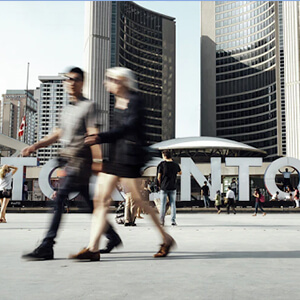
Understanding the people of Toronto
People in Toronto tend to be less expressive than people from other areas of Canada, and prefer less physical contact. Keep in mind that gesturing and being very loud is typically frowned upon in Toronto. In terms of business, Canadians prefer being direct and straight to the point.
Toronto is mainly English speaking city, as opposed to more French dominant areas. Therefore, standard greetings such as “Good morning”, “Hi” and “Hello” are expected. In terms of conversation topics, your best bet is discussing sports – especially hockey. Knowing a bit of Canadian history will also make a great impression. Try to avoid Quebec’s separatist politics and do not compare Canada to your home country – this will not be appreciated.
Finding housing
When moving to Toronto, it’s always a good idea to enlist the help of a real estate agent. The Toronto Real Estate Board (TREB) is a great way to access listings and gather market information as is Multiple Listing Service (MLS). Also check out Toronto Star, Home Publishing group and Homefinder sites when searching for your next home. If you’re struggling to decide whether you should rent or buy, visit the Ontario Ministry of Finance webpage for information on buying and to help you make a decision on whether that is the route you’d like to take.
Types of housing
Canadian homes are typically high quality, but very expensive in Toronto. In the city and older suburban areas, houses tend to be very compact two-story colonials with limited space. In the newer suburban areas, the two-storey homes are usually more modern. Apartments tend to be smaller, with around 2 bedrooms and are quite common in Toronto.
Short term housing
Are you only moving temporarily? There are quite a few short-term stay options in Toronto, available for anywhere between a matter of days and over a year. Check out Biz-Stay, Corporate Stays, DelSuites, Premier Executive Suites and SuiteNet for different offerings in
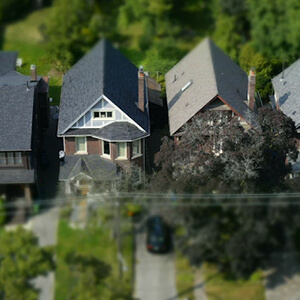
Education
Local school system
The Toronto school system is tax-supported, with a choice of either Non-Religious public schools or Catholic schools – you are welcome to choose between the two, given your personal beliefs. Keep in mind that your home address will determine which school district your child will be able to apply for. This is a really important factor when deciding on an area to live in.
You can also opt for a private school, which often provides before and after school care and many extracurricular activities. Elmwood School, Great Lakes College of Toronto, Havergal College and The York School are all located in Toronto.
International schools
Alternatively, there’s always the option of an international school in Toronto – either taught in English or another language. International Baccalaureate (IB), Diploma or Middle Years, Primary Years or French immersion programmes are available. You could also choose one of the specialist international schools, such as German International School, TFS Canada International School and ILSC.
Preschools
Children can attend “junior kindergarten,” from the age of four. There are several Montessori schools as well as traditional options in Toronto, which you can view here.
Alternatively, you can opt for a playschool, also known as preschool, if your child is up to 5 years old.
Do you need more information on choosing a school for your children in Canada? Our blog, Relocation tips: How to choose the right school for your kids in a new country, has plenty of information to assist you.
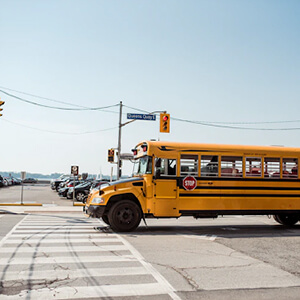
Interested in information on another country? Take a look at our other International Relocation guides.
Great customer Experiences start here
Very pleasent and helpful. Nothing too much trouble.
Mr M H moved from London, UK to Toronto, Canada
Very helpful and patient even when things got packed that we had to get out again!
Mr M E moved from Enfield, UK to Dorset, UK
Thanks to Graham, Nick and the entire crew!
Mr C D M moved from UK to Singapore
Friendly and helpful crew.
Ms T W moved from USA to Cambridgeshire, UK
